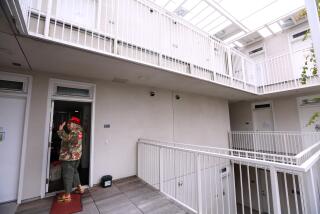SAN CLEMENTE : Utility Tax Suggested to Finance Repairs
Facing mounting liability from failing drainage pipes and deteriorating streets, the city has been advised that it can finance the repairs by imposing a 3% utility tax that would cost each household an average of $5.85 a month.
This was part of the information presented by City Manager Michael W. Parness at a study session of the City Council that convened this week to address the city’s financial woes. After the discussion, the City Council agreed to postpone until later this year a decision on selecting any new revenue source.
Parness said the city suffers from a $1.5-million shortfall in its general fund reserve and a $1.1-million shortfall in reserves to pay for future workers’ compensation and liability insurance claims.
But the biggest financial burden, Parness said, is the need to spend $17 million over the next decade on long-deferred repairs of streets and storm drains, some of which have deteriorated so badly that water is causing the land to erode.
Parness said a recent study showed the city can save little money by making its operations more efficient. While there is hope that the city can generate more money in sales and property tax through economic development, he said, those gains will take 10 to 12 years to materialize.
So, he concluded, the city must find new sources of revenue. Several alternatives, including general obligation bonds and an assessment district, were discussed at the session. But a proposal to institute a 3% tax on all utilities in the city gained the most attention.
Parness said a 3% tax could raise $1.627 million in the city’s 1991-92 fiscal year and $19 million in 10 years.
Parness said the council could tax utilities such as gas, electric, sewer, water, solid waste and cable television without obtaining voter approval. By contrast, he said, voters would have to approve general obligation bonds or assessment districts. He also said that over the years the City Council would be able to increase or decrease the utility taxation rate.
Low-income residents could be exempted if the utility taxes created a hardship, Parness said.
Mayor Scott Diehl said he favors the utility tax. “I’m not saying it won’t be controversial. But it looks like an alternative that can work,” he said.
The council voted 4 to 0 to instruct the city manager to start meeting with community groups to explain the city’s financial predicament and ask for possible solutions.
More to Read
Sign up for Essential California
The most important California stories and recommendations in your inbox every morning.
You may occasionally receive promotional content from the Los Angeles Times.










